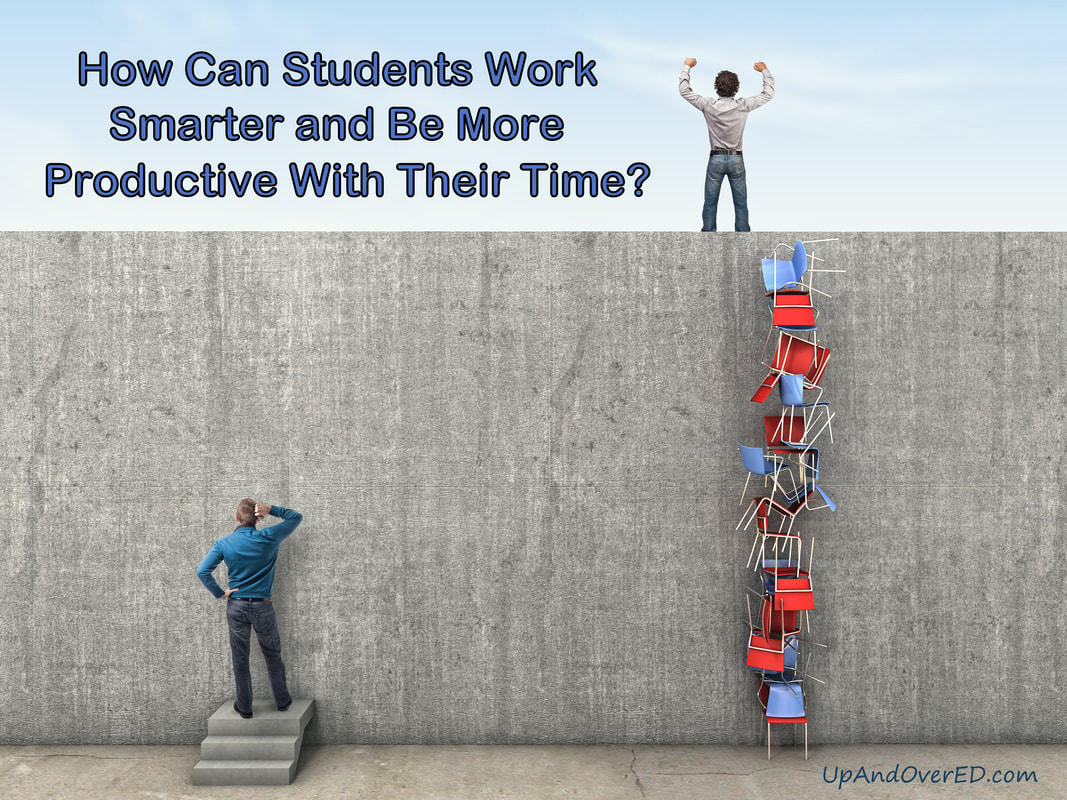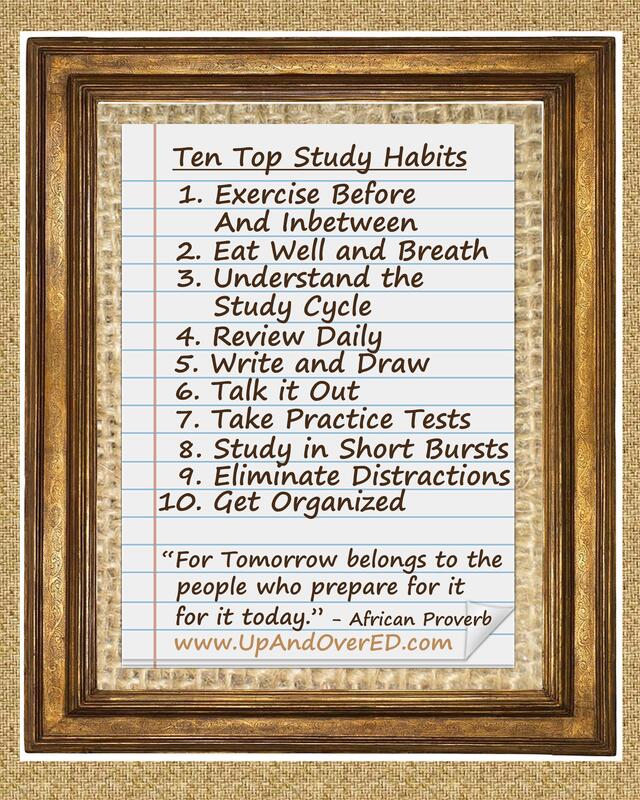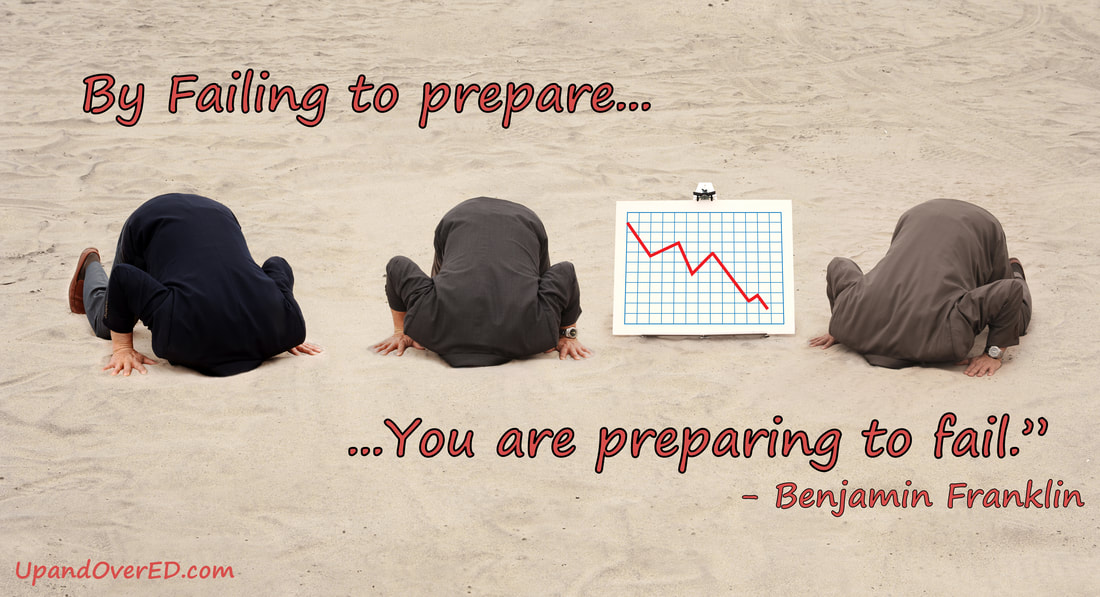| Learning is hard work – for all of us. And each of us will spend our lifetimes learning new skills and ideas. If students in their teens can learn effective and efficient ways to learn, they will have an ability that will benefit them for the rest of their lives. My friend Jim, a commercial pilot and the father of three adult children, was visiting this week, and he had just finished |
the training to fly a new model of aircraft. He had a lot of memorization to do, and one of the ways he accomplished this was to organize his notes and use those notes to form a question and answer sequence. He then videotaped himself asking each of the questions, then pausing, and then answering the question. He watched his homemade video over and over again until he could say the answer to each question before the answer was said on the video.
Did that take a lot of time and a lot of work? Yes! Did he pass his new pilot's test? Yes! Is he now flying to exotic places all over the world? Yes he is.
Did that take a lot of time and a lot of work? Yes! Did he pass his new pilot's test? Yes! Is he now flying to exotic places all over the world? Yes he is.
| Having strong skills and a wide breadth of knowledge can lead to many adventures, and people will pay you for what you know and what you can do. I often tell my tutoring students that their life is like a treasure chest, and what is inside is up to them. Each time they work hard to learn something new, they have added to their own treasure chest of knowledge, and they will be able to use that knowledge in the future. But developing effective study skills requires a lot of time and patience, and just reading textbooks and listening to lectures is not enough. Here are some practical ways to help students learn and retain knowledge. |
1. Exercise Before and In-between: Getting the blood pumping and moving to the brain can help a study session be much more productive. Jim, the airline pilot mentioned earlier, would do push-ups in between his study sessions to help wake himself up and increase his ability to focus. Standing while studying can help too. Although there are fancy (and expensive!) stand-up desk options, I created my own stand-up desk with a simple side table from Ikea, two shelf brackets, two screws and a shelf from Home Depot – all for under $20. (See the photo at the end of this blog.) My work day usually begins at 9 am and goes to 6 pm. I spend many hours sitting (as I think many of us do!), and before I see my first client, I usually exercise for forty-five minutes which helps keep me focused throughout the day.
2. Eat Well and Breath: Health is an important part of good study habits, and good nutrition and reducing stress are critical. I thought about writing a blog entitled, “Is My Child A Fat Head?” because the answer to that would be yes – in a biological way. The brain is made of 60% fat, and eating a diet full of good fats and proteins in addition to healthy carbs can make a difference. Many students subsist on junk food, but switching to a healthy diet and learning to relax and breath between study sessions makes studying easier and more productive.
2. Eat Well and Breath: Health is an important part of good study habits, and good nutrition and reducing stress are critical. I thought about writing a blog entitled, “Is My Child A Fat Head?” because the answer to that would be yes – in a biological way. The brain is made of 60% fat, and eating a diet full of good fats and proteins in addition to healthy carbs can make a difference. Many students subsist on junk food, but switching to a healthy diet and learning to relax and breath between study sessions makes studying easier and more productive.
| 3. Understand the Study Cycle: According to Frank Christ, the developer of The Study Cycle Theory, the process of studying can be broken down into five parts: previewing, attending class, reviewing, studying, and checking your understanding. Many students miss key components of The Study Cycle. For example, few students read the material ahead of time before the lecture, but when students preview the material, they create places in their brain where they can hang the new information they learn in the lecture. Also, by skipping the reading preview, they miss the benefit of having the information repeated to the in a listening mode after experiencing the material in a reading mode. All five components of The Study Cycle are required for solid learning. |
4. Review Daily: Scientists have found that the first time a student hears a lecture or studies something new, he or she will retain up to 80% of the information IF the material is reviewed within 24 hours. Interestingly, the effect is cumulative, so if students review every day, after a week the student may retain a full 100% of the knowledge after only five minutes of review. This works so much better than cramming on the last day for the test. It is better to review close to the time that the material is learned as opposed to close to the time of the test.
5. Write and Draw it Out: Often students will finish a week of school with a three-ring binder crammed with notes. What the student really needs from these notes are the key ideas, so time spent underlining or highlighting key words can help. Also, rewriting these key ideas on another sheet of paper in a condensed form (and perhaps as an outline) will help the brain connect information and form patterns.
Making connections is what learning is all about, and for some students drawing out mind maps,
5. Write and Draw it Out: Often students will finish a week of school with a three-ring binder crammed with notes. What the student really needs from these notes are the key ideas, so time spent underlining or highlighting key words can help. Also, rewriting these key ideas on another sheet of paper in a condensed form (and perhaps as an outline) will help the brain connect information and form patterns.
Making connections is what learning is all about, and for some students drawing out mind maps,




 RSS Feed
RSS Feed
